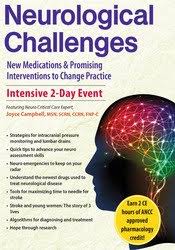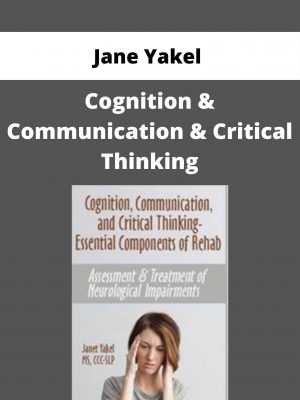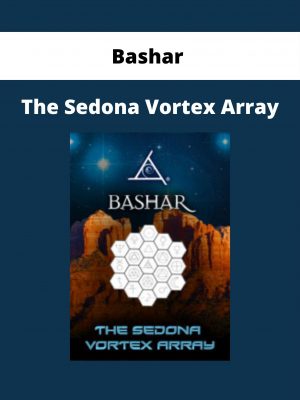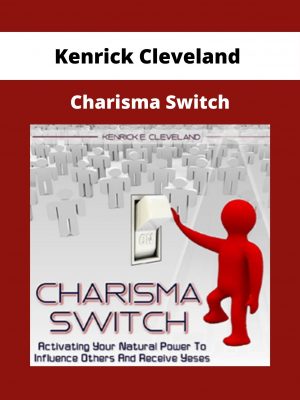Joyce Campbell – 2-Day Neurological Challenges
$439 Original price was: $439.$104Current price is: $104.
Shopping Instructions:
- DISCOUNT 15% : SHOP15
- Product Delivery: Within 1 – 12 hours after purchase.
Over the past 20 years, I have witnessed dramatic changes in the care of patients with neurosurgical problems. I have moved from feeling helpless to extremely encouraged by what we can do for our patients.
Joyce Campbell – 2-Day Neurological Challenges
Toolbox for Assessment
- Simplifying neuro assessment through application of neuro anatomy
- Correlate pathophysiology with clinical manifestations
- NIHSS and GCS, brain death, Mini
- Mental, verbal fluency, memory, right and left hemisphere function, CAM assessment
Neurological Testing
- CT, CTA, arteriogram, MRI, perfusion
10 Leading Neurological Disorders
- Traumatic Brain Injury
- Updated recommendations for care
- Practical approaches for measuring IICP
- Research on neuroprotective agents
Stroke Patient
- Maximizing time to needle time for ischemic stroke
- The 5 D’s for identifying posterior stroke
- Wading through the clinical practice guidelines for blood pressure management in stroke patients
- Stroke and the young adult
- Expanding the window of care
Alzheimer’s Disease
- “Still Alice”: Mild, moderate and severe
- Treatment for cognitive and neuropsychiatric symptoms
- From “mice to men”: Hope is on the horizon
- Caregiver support
Epilepsy
- Seizure types and treatment
- Unprovoked seizure: Work-up and treatment decisions
- Status epilepticus
Parkinson’s Disease
- Traditional and alternative medicine treatment
- Deep brain stimulation
Brain Tumor
- Integrated care: Conventional treatments and supportive therapies
HIV
- Neurological manifestations
- Diagnostic work-up
Multiple Sclerosis
- Unpredictable disease of CNS
- Diagnostic criteria
- Current treatment practices
ALS
- Clinical manifestations; Diagnostic work up
- Assistive technology challenge
- Clinical trials
Emergent Neurological Disease: Zika and Guillain Barré
Commonalities and Unique Problems:
- Aphasia
- Dysarthria
- Dysphagia
- Visual problems
- Mobility
- Cognitive impairment
- Hemi-inattention
- Anosognosia
- Pseudobulbar affect (PBA)
- Spasticity
- Dizziness and vertigo
- Bowel and bladder dysfunction
- Sleep disturbances
- Depression
- Social isolation
- Caregiver fatigue
Pharmacological Therapy
- Osmotic diuretics
- Sedatives and pain medications
- Antispasmodic medications
- Antiseizure medications
- Antidepressants
- Medications to prevent and treat stroke
- Chemotherapy for brain tumors
- Disease modifying agents for MS
- Corticosteroids
- Medications to treat:
- Parkinson’s Disease
- Alzheimer’s Disease
Would you like to receive Joyce Campbell – 2-Day Neurological Challenges ?
Description:
- Strategies for intracranial pressure monitoring and lumbar drains
- Quick tips to advance your neuro assessment skills
- Neuro emergencies to keep on your radar
- Understand the newest drugs used to treat neurological disease
- Tools for maximizing time to needle for stroke
- Stroke and young women: The story of 3 lives
- Algorithms for diagnosing and treatment
- Hope through research
Over the past 20 years, I have witnessed dramatic changes in the care of patients with neurosurgical problems. I have moved from feeling helpless to extremely encouraged by what we can do for our patients. Technology and pharmaceuticals have altered the course of many of these diseases. Many of our old practices have been “put to pasture”. We will look beyond the basics and explore areas that are less known. Every day new and exciting research provides us with novel treatments. We will explore new drugs, promising interventions and evidence that is emerging into practice. My goal is to equip you with tools to better identify problems and improve overall care on the frontline. It is my aspiration that you will leave the seminar energized and better prepared to care for patients with neurological problems.
Joyce Campbell, MSN, SCRN, CCRN, FNP-C
Related products
NLP & Hypnosis
NLP & Hypnosis
NLP & Hypnosis
NLP & Hypnosis
NLP & Hypnosis
NLP & Hypnosis
NLP & Hypnosis












